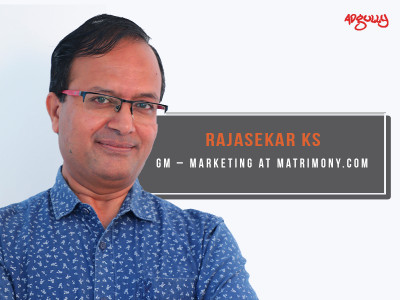Why YouTube’s closure of FameBit sends a bad signal to influencer marketing platforms
The influencer marketing industry, which Google estimates to reach $15 billion in 2021, viewed with shock the recent announcement YouTube made about shutting down its self-service influencer marketing platform, FameBit and will now evolve into Brand Connect (https://youtube.googleblog.com/2020/06/introducing-youtube-brandconnect.html).
Also read: YouTube releases the most watched PSA Ads leaderboard for India
In 2017, YouTube had acquired FameBit.com, an influencer marketing platform, which brought content creators (read influencers) and brands together. Recently, YouTube announced that it was closing down the self-service part of FameBit.
Like any influencer marketing platform, FameBit automated influencer marketing. It was all plug and play. Brands would upload the campaign, influencers signed into it. Brands choose from among the influencers who sign up and campaigns rolled out. There were no further conversations between the parties.
While FameBit did not charge creators or brands a fee for signing up, a 10 per cent fee was charged for bringing them together. Sony, Adidas, Conair Cannon were some of its big clients. For creators, it was an easy way to find paid sponsorships and access to latest tools from Google. Brands got access to a trusted pool of creators vetted by YouTube.
All seemed fine until….
The recent announcement said that they were investing more on full service for creators (Any YouTube creator with 25k subscribers can join) and brands. It also noted that creators earned 30 times more on these full service deals, than on self service. The report revealed that self service represented only 4 per cent of total of FameBit’s payouts to creators.
YouTube’s move was also a result of brand campaigns studies of clients like Edgewell Personal Care, where it found that full service partnerships work out better for creators and brands.
Click here to read Case Study.
With all its Google insights and tools, it made it possible for brands to truly measure the impact and the ROI of influencer marketing.
What does this signal for the self-service Influencer Marketing platforms?
It has just brought to the fore the old debate on how influencer marketing is largely a creativity and content game than just numbers. One can’t choose creators off the shelf on a platform and expect true impact and ROI. The creator and brand have to understand each other, there has to be a fit of the campaign and the creator’s audience, in fact, a perfect marriage of creator and the brand, the brand’s nuances have to sink in, the context and the current campaign goals must align with the creator.
It’s more like a readymade dress versus a unique, personalised dress crafted by a top fashion designer. The dress reflects the wearer’s personality, in fact, lifts it, fits perfects, leverages the advantages of the person and subtly hides the flaws.
The measurability, impact and true ROI of influencer marketing challenges can’t be swept under the carpet. Till we answer that, automated influencer marketing platforms may not be the best answer.
It also means that only micro and mid-size creators will be on automated self-service influencer platforms and the celebrity influencers will work with directly with platforms that are not automated ordirectly with brands, agencies or the social media platforms like YouTube, Instagram and TikTok.
But will creators ever get the freedom they want to build authentic content that their audience will love? Will brands and agencies stop treating influencers as editorial or TV scripts? Will brands allow creators to go with their passion, voice and be authentic?
Wait and watch.
(Speaker, writer, social media and content strategist, Rajasekar KS, GM – Marketing, Matrimony.com, helps organisations leverage content and social media to create conversations and turn fans into collaborators.)




Share
Facebook
YouTube
Tweet
Twitter
LinkedIn